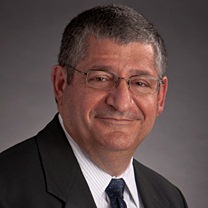The majority of insurance customers are more knowledgeable about their favorite television shows than about their insurance policy, shows a 2013 poll conducted by Nationwide Insurance.
 “The only way we are going to fix the knowledge gap is if agents take responsibility for mending it,” Mark Pizzi (pictured), chief operating officer of Nationwide Insurance, tells PC360. ”We expect Nationwide agents to spend time explaining each household's individual risks, which we provide in annual 'On-Your-Side' calls to our members.”
“The only way we are going to fix the knowledge gap is if agents take responsibility for mending it,” Mark Pizzi (pictured), chief operating officer of Nationwide Insurance, tells PC360. ”We expect Nationwide agents to spend time explaining each household's individual risks, which we provide in annual 'On-Your-Side' calls to our members.”
In a survey of about 1,500 adults who own P&C insurance, 57 percent of consumers said they know more about prime-time TV than personal homeowners' coverage. According to Nationwide's aptly named “Simplification Study,” the problem isn't necessarily uneducated customers. The judging process on major network talent shows is easier for Americans to understand than insurance language, although the latter is far more impactful to their lives.
Recommended For You
Want to continue reading?
Become a Free PropertyCasualty360 Digital Reader
Your access to unlimited PropertyCasualty360 content isn’t changing.
Once you are an ALM digital member, you’ll receive:
- Breaking insurance news and analysis, on-site and via our newsletters and custom alerts
- Weekly Insurance Speak podcast featuring exclusive interviews with industry leaders
- Educational webcasts, white papers, and ebooks from industry thought leaders
- Critical converage of the employee benefits and financial advisory markets on our other ALM sites, BenefitsPRO and ThinkAdvisor
Already have an account? Sign In Now
© Touchpoint Markets, All Rights Reserved. Request academic re-use from www.copyright.com. All other uses, submit a request to [email protected]. For more inforrmation visit Asset & Logo Licensing.







